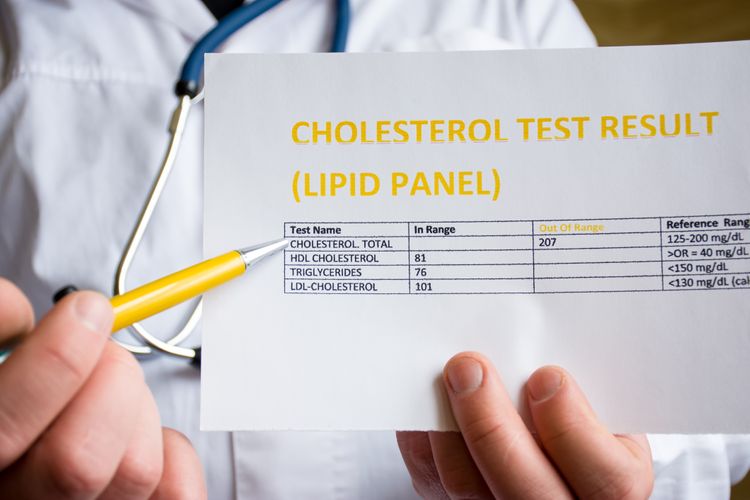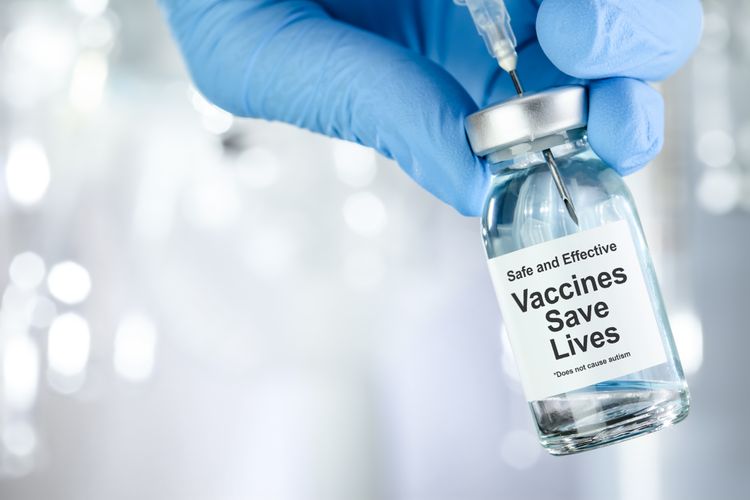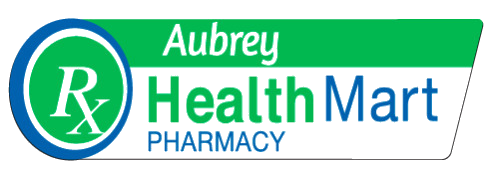Health Information
Aubrey Pharmacy will work with you to develop a wellness program for the care and treatment you need.

Wellness
At Aubrey Health Mart Pharmacy, we're excited to partner with you in your health journey. Our friendly team is available to assist you with any questions or concerns. Our priority is to collaborate with you to create a wellness plan that is personalized to meets your needs. We look forward to welcoming you to our pharmacy and supporting your health.
Aubrey Health Mart Pharmacy offers in-depth discussions on a range of conditions and treatments, including:

Asthma
Asthma is a health condition where the airways and lungs can become inflamed and narrowed, which disrupts normal breathing. With asthma, inhaled allergens or irritants will cause the airways to tighten. Then during the next stage, an inflammatory response will cause the airways to swell and become clogged with thick, sticky mucus. When someone is experiencing an asthma attack, breathing becomes progressively more difficult, and patients will often produce the a wheezing sound. While asthma does have the potential to be serious, it is typically manageable when taking the right medication.

Common Cold
A common cold is a viral infection that impacts the upper respiratory tract, including the throat and nose. A cold can be caused by various viruses. Symptoms of this will typically last around a week but may persist longer in children, the elderly, or those with underlying health conditions. The common cold is a common reason that people seek medical attention annually.

High Blood Pressure
High blood pressure, also known as hypertension, occurs when the force of blood against the artery walls is persistantly higher than normal. This pressure is influenced by how much blood the heart pumps and the resistance of blood flow in the arteries. When the heart pumps more blood than usual or the arteries are narrower than they should be, it often leads to high blood pressure. If this is left untreated, high blood pressure can lead to severe health issues including strokes, heart attacks and kidney failure. The two main types of high blood pressure are primary and secondary. Primary hypertension develops gradually over time without an obvious cause, while secondary hypertension is the result of another medical condition.

High Cholesterol
Cholesterol is produced by the intestines, liver, and practically all tissues in the body. Cholesterol plays a crucial role in making vitamin D, hormones and bile for digesting fats. In addition to this, cholesterol helps maintain the stability of cell membranes against temperature changes. While some cholesterol is essential for these functions, too much of it can be harmful. Excessive cholesterol is known to clog arteries, which increases the risk of a stroke. High cholesterol doesn’t typically show symptoms, but a simple blood test will detect it. Managing cholesterol levels often involves adopting a healthy and active lifestyle, though medication may be required in some cases.

Immunizations
At birth, infants receive temporary protection from certain diseases through antibodies that are transferred from their mother. However, this maternal immunity will fade over time. To ensure protection against various diseases, vaccinations are then used. Majority of vaccines are given as injections, though some are able to be administered orally or nasally. Vaccines contain small amounts of killed or weakened microorganisms that can cause the targeted diseases. By introducing these altered pathogens into the body, vaccines help the immune system produce antibodies as if it were combating the actual disease, offering long-term protection.

Quit Smoking
Smoking cigarettes is damaging to almost every organ in the body. It is the leading cause of lung cancer and chronic obstructive pulmonary disease (COPD) and it a frequent contributor to stroke, coronary heart disease and other serious conditions. Annually, tobacco use is responsible for millions of deaths worldwide. The risk of developing heart disease or lung cancer increases with every cigarette smoked. Nicotine is the addictive substance in cigarettes. It not only creates a physical dependence but often will also lead to social addiction due to many people associate smoking with social activities. This can make it challenging to quit.
Smoking cessation refers to the process of quitting smoking and using tobacco products. Quitting smoking offers many benefits, including better circulation, easier breathing, healthier blood pressure, and enhanced senses of smell and taste. It can lead to a longer, healthier life, with cancer risks diminishing the longer one remains smoke-free. While quitting smoking often requires several attempts, when you combine counseling, medication, and support from peers it can be highly effective in helping you quit.

Weight Loss
Maintaining a healthy diet and regular exercise routine is key for overall well-being, and not just for weight loss. Many individuals focus on improving their diet and exercise only when trying to lose pounds, but these practices are essential for health even for people at a healthy weight.
Weight gain is a result of when calorie intake exceeds calorie expenditure. When losing weight, it is necessary to reduce your calorie consumption. This usually involves cutting back on high-calorie foods such as fatty and sugary items and limiting or avoiding alcohol. You can also benefit from reducing portion sizes of high-calorie foods and increasing intake of high-fiber foods, such as fruits and vegetables. Regular physical activity through consistent exercise will play a key role in weight loss and overall health.
